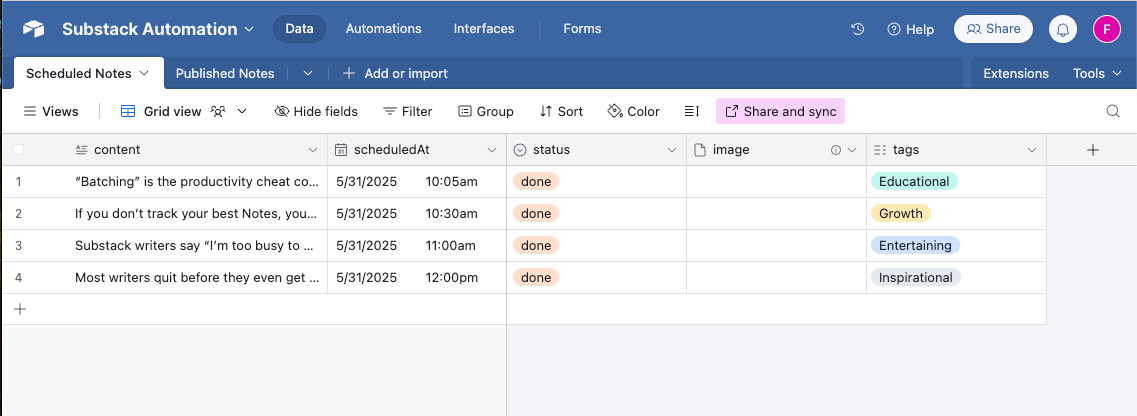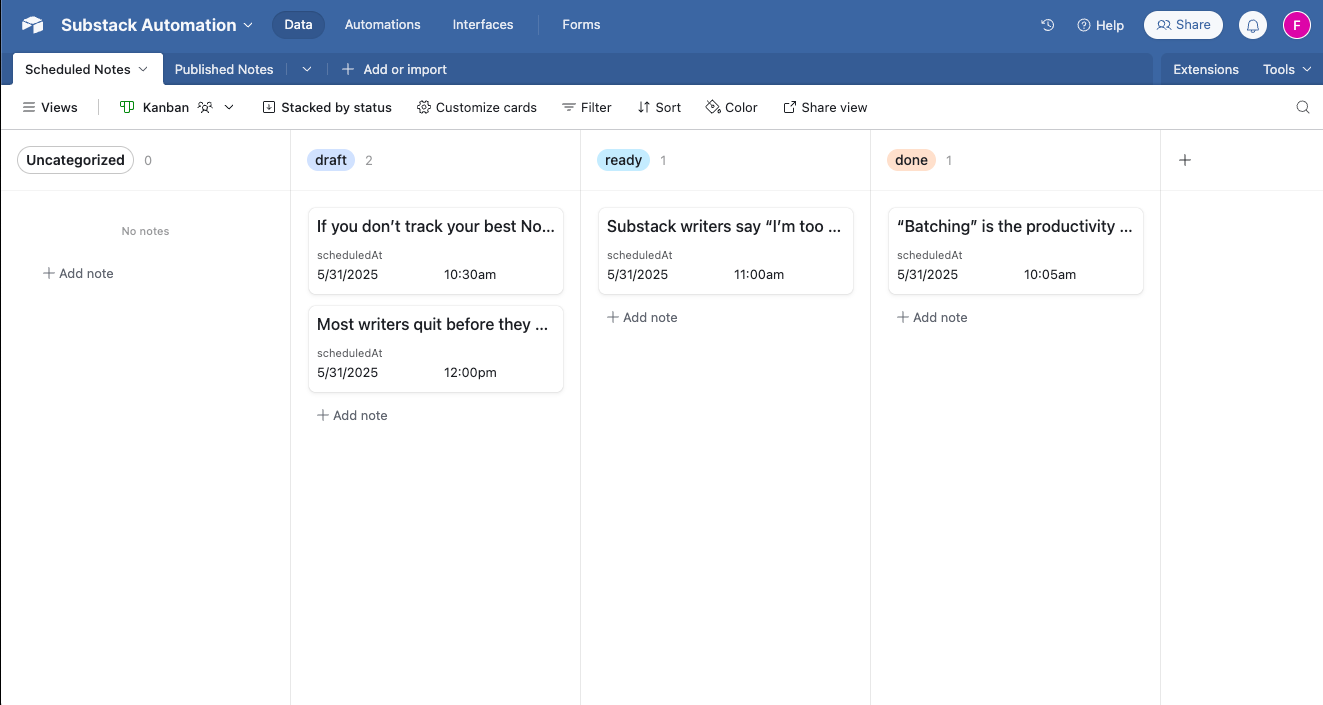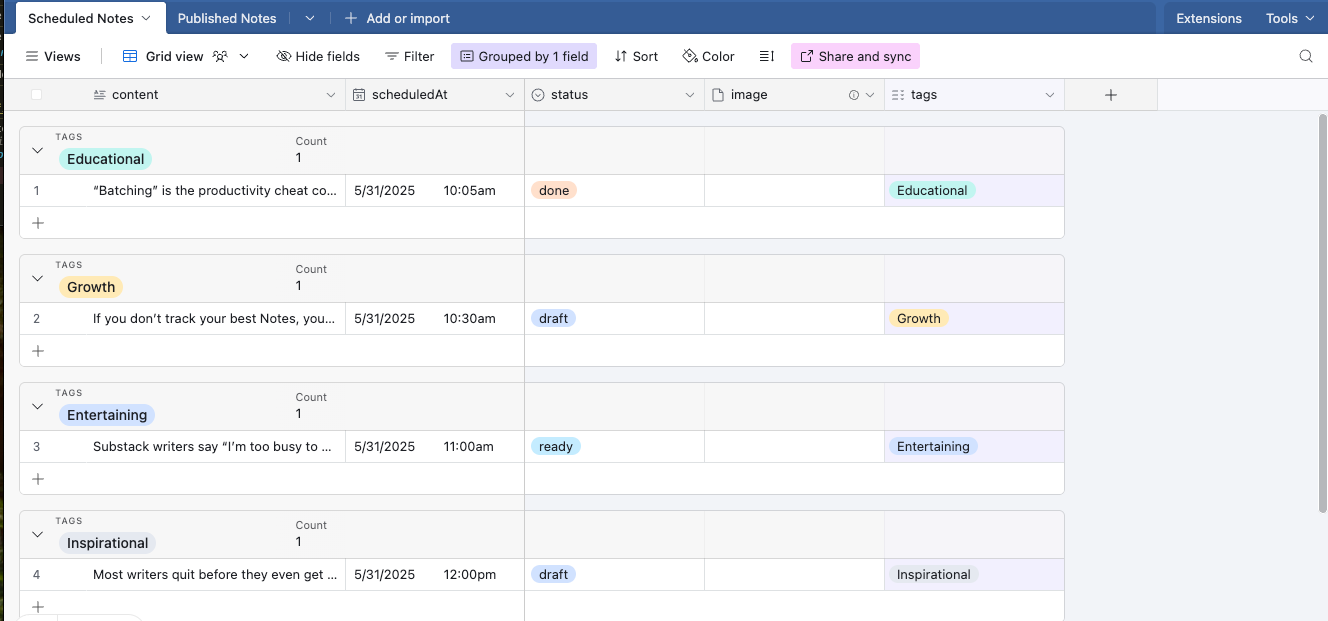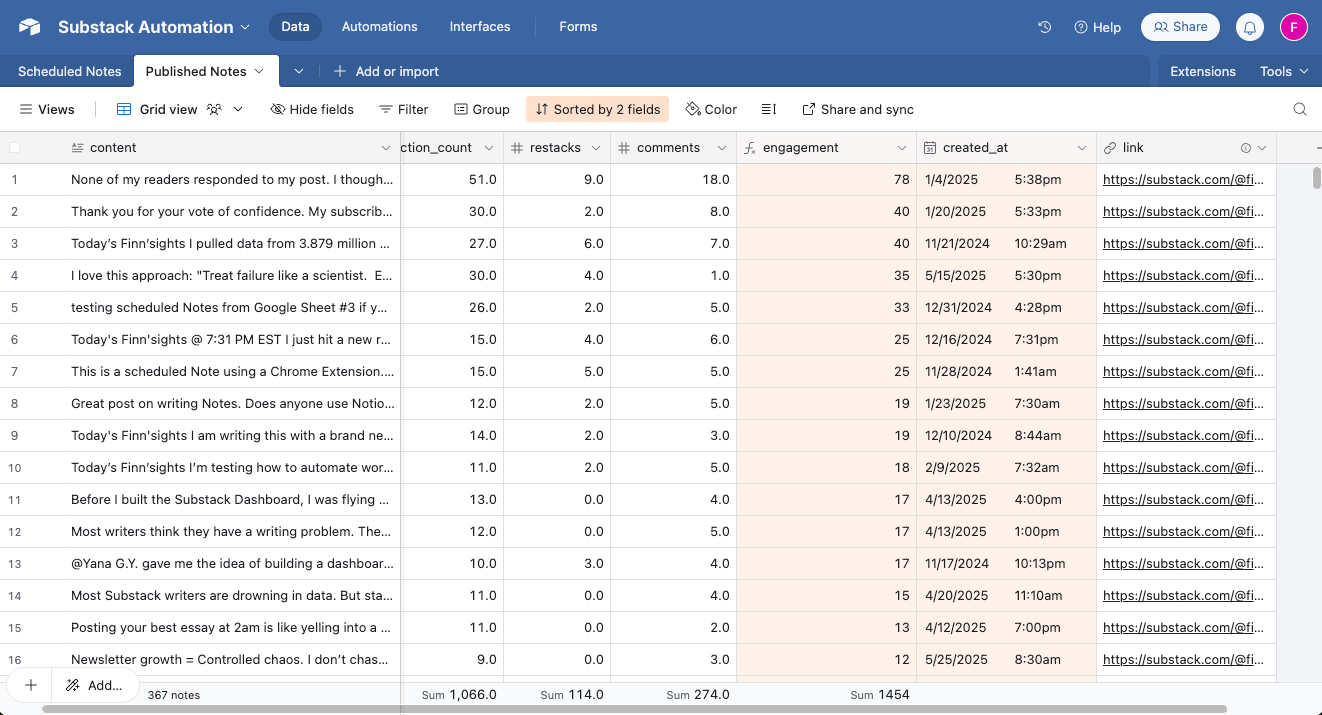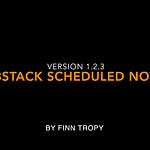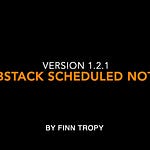Managing Notes on Substack can be messy. Ideas scatter, engagement insights stay buried, and posting regularly becomes a chore.
That’s why I’m building an Airtable integration to bring order, automation, and data-driven decision-making to your Notes workflow.
In this article, I’ll walk you through the key features (accompanied by a demo video), explain how this integration works, and demonstrate how it can help you grow smarter by staying organized.
🧠 Why Airtable?
Airtable gives you the structure of a spreadsheet with the power of a database. That’s perfect for creators who want to:
Write multiple Notes in one go
Organize and tag them by theme, campaign, or tone
Schedule them to post automatically on Substack
No more copy-pasting, no more scrambling to post manually at times when your audience is active.
The integration is using content, scheduledAt, and status fields.
My Substack Notes Scheduler product reads the rows in this table, checks the scheduled time to ensure it is in the future, and verifies the status.
Notes marked as ‘ready’ are queued up in the Notes Scheduler, and the software updates the status to ‘done' after that.
The Notes Scheduler will post for you at scheduled times, so you don’t have to sit in front of your computer all the time. You just need to keep your Chrome browser running and prevent your computer from going into sleep mode.
⚙️ Key Features
Here are the key features that I have implemented so far:
✅ Batch Writing + Scheduling
You can draft a whole week (or month) of Notes in Airtable and assign specific post dates and hours. The integration will take care of publishing them at the scheduled time on Substack.
You can edit your Notes in Kanban view to see drafts, ready, and done in different columns. Just drag the notes from the draft column to the ready column, and click a button on your Notes Scheduler to queue them for publishing.
🎯 Thematic Organization
Group your Notes by tags—like “Product Tips,” “Behind-the-Scenes,” or “Reader Q&A.” Airtable lets you visually track what's going out when, so your content feels cohesive.
Here is an example of using tags to group by different themes:
📈 Engagement Metrics for Smart Sorting
The integration fetches your published Notes and attaches engagement metrics, such as likes, replies, and restacks. You can then sort or filter to see what’s performing best, and write more of that.
🎥 Demo: See It in Action
In this short demo video, I walk through how the Airtable interface works, how to set up scheduled Notes, and how the engagement insights come together to guide your content strategy.
🚀 What’s Next?
This Airtable integration with the Substack Notes Scheduler is still evolving.
I’m considering adding more features, such as
Posts and related engagement metrics
Subscriber details and statistics
Recommendations and metrics
If you’re interested in testing and would like early access to this new version (1.4.1) or have feature suggestions, please don't hesitate to let me know. Send a DM or leave a comment below.



